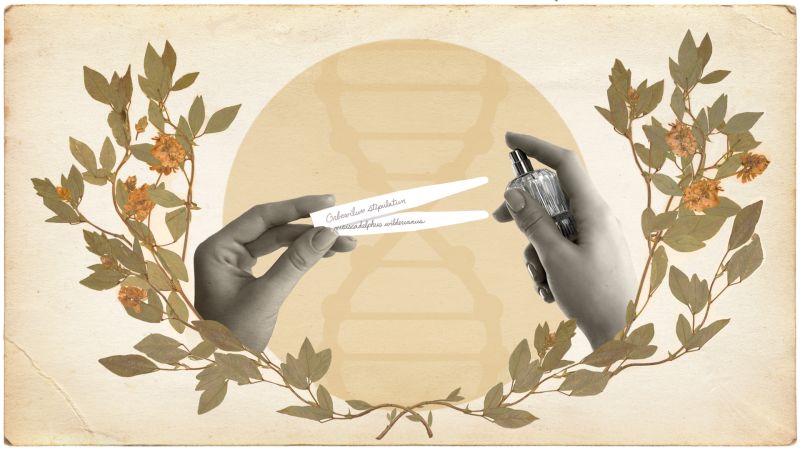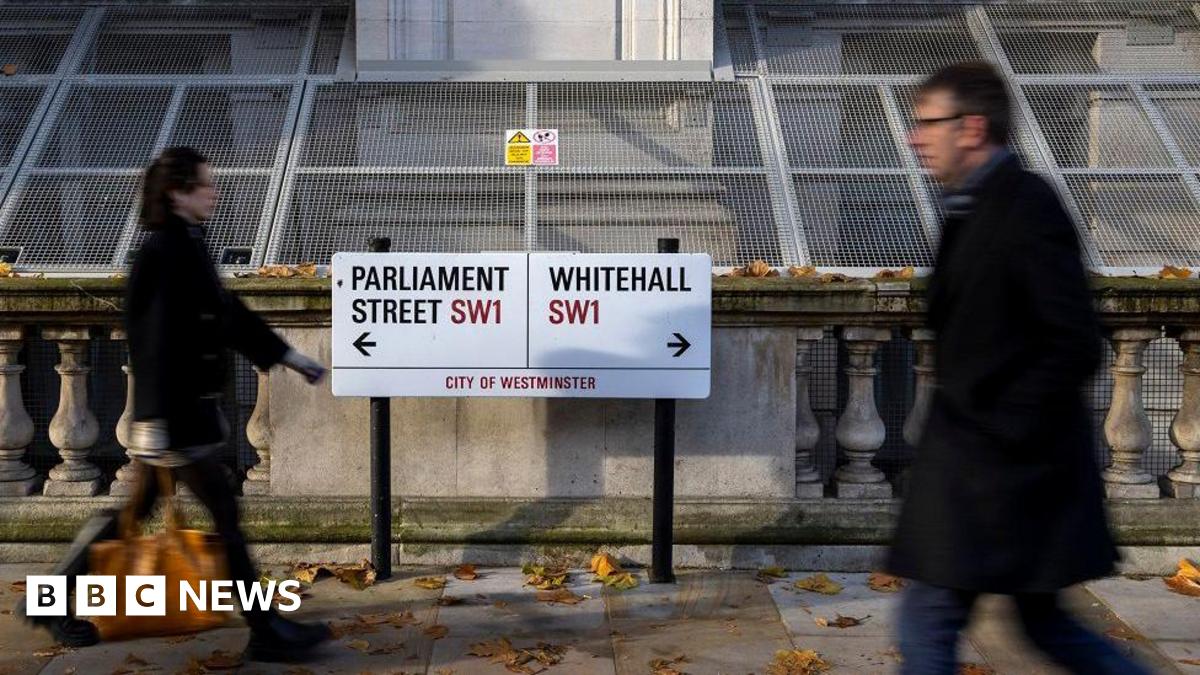The Science Of Scent: Recreating The Fragrances Of Lost Flowers

Welcome to your ultimate source for breaking news, trending updates, and in-depth stories from around the world. Whether it's politics, technology, entertainment, sports, or lifestyle, we bring you real-time updates that keep you informed and ahead of the curve.
Our team works tirelessly to ensure you never miss a moment. From the latest developments in global events to the most talked-about topics on social media, our news platform is designed to deliver accurate and timely information, all in one place.
Stay in the know and join thousands of readers who trust us for reliable, up-to-date content. Explore our expertly curated articles and dive deeper into the stories that matter to you. Visit Best Website now and be part of the conversation. Don't miss out on the headlines that shape our world!
Table of Contents
The Science of Scent: Recreating the Fragrances of Lost Flowers
The delicate perfume of a long-extinct flower, the intoxicating aroma of a plant lost to time – these are scents that once filled the air, now only existing in the dusty pages of botanical journals and the faintest memories. But thanks to the burgeoning field of historical perfumery and advancements in analytical chemistry, scientists are bringing these lost fragrances back to life, one molecule at a time. This fascinating endeavor blends scientific rigor with artistic interpretation, offering a captivating glimpse into the past and a unique opportunity to understand the intricate relationship between plants, people, and their environments.
Unearthing the Past: The Challenges of Reconstructing Lost Scents
Recreating the scents of extinct flowers presents a significant challenge. Unlike preserved physical specimens, fragrances are ephemeral. Researchers must rely on indirect evidence, including:
- Historical texts: Descriptions of flower scents in botanical literature, diaries, and other historical documents offer valuable clues, although often subjective and lacking precise chemical detail.
- Herbarium specimens: While dried flowers can't offer the full olfactory experience, careful analysis might reveal residual volatile compounds using techniques like Gas Chromatography-Mass Spectrometry (GC-MS).
- Artistic representations: Paintings and other artworks sometimes depict flowers in contexts suggesting their fragrance, offering subtle hints that can be combined with other evidence.
- Archaeological evidence: In rare cases, archaeological discoveries might reveal traces of ancient perfumes or plant remains containing residual scent molecules.
The Analytical Power of GC-MS and Beyond
Gas Chromatography-Mass Spectrometry (GC-MS) plays a crucial role in this scientific detective work. This powerful analytical technique separates volatile organic compounds (VOCs) – the building blocks of fragrance – and identifies them based on their mass-to-charge ratio. By comparing the VOC profiles of extant related species, researchers can deduce the likely composition of extinct flowers' scents. Further analysis using techniques like Headspace Solid Phase Microextraction (HS-SPME) allows for non-destructive sampling of delicate herbarium specimens.
However, even with advanced techniques, complete reconstruction is often impossible. The degradation of volatile compounds over time means some information is irretrievably lost. This necessitates a degree of creative interpretation by perfumers who work closely with scientists to blend existing aroma chemicals into plausible approximations of the lost fragrances.
Beyond the Lab: The Art of Historical Perfumery
The process of recreating lost scents is not merely a scientific exercise; it's also a highly artistic endeavor. Perfumery requires a delicate balance of chemical precision and artistic sensibility. Experts must consider factors such as:
- The historical context: The intended use of the fragrance (e.g., personal adornment, religious ceremonies) influences the desired outcome.
- Sensory perception: The subjective nature of smell necessitates careful consideration of how historical descriptions might translate into modern olfactory experiences.
- Ethical considerations: Recreating the scent of a plant driven to extinction raises important ethical questions about our relationship with nature and the responsibility of scientific endeavors.
The Future of Lost Scents: A Growing Field
The field of historical perfumery is rapidly evolving. As analytical techniques improve and historical data become more accessible, the accuracy and complexity of recreated fragrances will increase. This research not only unveils the fascinating olfactory landscape of the past but also has implications for:
- Conservation efforts: Understanding the fragrance profiles of endangered plants can aid conservation efforts by highlighting their unique characteristics.
- Cultural heritage: Recreating historical scents contributes to a richer understanding of past cultures and societies.
- Therapeutic applications: Some historical fragrances may have untapped therapeutic potential.
The pursuit of lost scents is a testament to human curiosity and ingenuity. It's a journey that bridges the gap between science and art, past and present, offering a captivating exploration of the rich and complex world of fragrance. Learn more by exploring resources dedicated to historical perfumery and botanical history – the fragrant past awaits rediscovery.

Thank you for visiting our website, your trusted source for the latest updates and in-depth coverage on The Science Of Scent: Recreating The Fragrances Of Lost Flowers. We're committed to keeping you informed with timely and accurate information to meet your curiosity and needs.
If you have any questions, suggestions, or feedback, we'd love to hear from you. Your insights are valuable to us and help us improve to serve you better. Feel free to reach out through our contact page.
Don't forget to bookmark our website and check back regularly for the latest headlines and trending topics. See you next time, and thank you for being part of our growing community!
Featured Posts
-
 Foot Injury Wont Stop Her Sloane Stephens Triumph Over Adversity
Jun 01, 2025
Foot Injury Wont Stop Her Sloane Stephens Triumph Over Adversity
Jun 01, 2025 -
 Yellowstone Star Offers Exciting News About Season 6
Jun 01, 2025
Yellowstone Star Offers Exciting News About Season 6
Jun 01, 2025 -
 Otis Hudson From Bengals Guard To Bank Of America Half Marathon Runner
Jun 01, 2025
Otis Hudson From Bengals Guard To Bank Of America Half Marathon Runner
Jun 01, 2025 -
 Knights Plea To Combs Humanizing Himself Through Testimony
Jun 01, 2025
Knights Plea To Combs Humanizing Himself Through Testimony
Jun 01, 2025 -
 The Trans High School Student And Trumps California Funding Threat What We Know
Jun 01, 2025
The Trans High School Student And Trumps California Funding Threat What We Know
Jun 01, 2025
Latest Posts
-
 Analysis Mc Larens Strong Practice Performance At The Hungaroring
Aug 02, 2025
Analysis Mc Larens Strong Practice Performance At The Hungaroring
Aug 02, 2025 -
 Mc Laren Dominates Hungarian Gp Practice Unstoppable At The Hungaroring
Aug 02, 2025
Mc Laren Dominates Hungarian Gp Practice Unstoppable At The Hungaroring
Aug 02, 2025 -
 Could Robert Pattinson And David Corenswets Heroes Unite In A Dc Sequel
Aug 02, 2025
Could Robert Pattinson And David Corenswets Heroes Unite In A Dc Sequel
Aug 02, 2025 -
 New Rules Civil Service Internships Reserved For Working Class Applicants
Aug 02, 2025
New Rules Civil Service Internships Reserved For Working Class Applicants
Aug 02, 2025 -
 Kai Cenat Vs X Qc A Net Worth Showdown
Aug 02, 2025
Kai Cenat Vs X Qc A Net Worth Showdown
Aug 02, 2025
